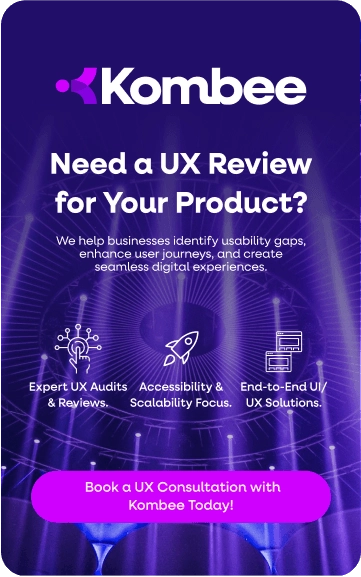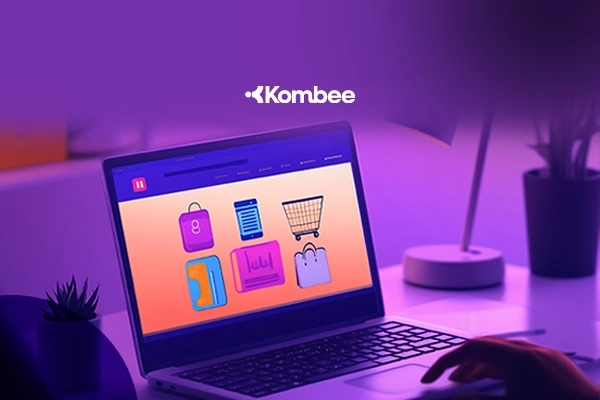Introduction
Have you ever Googled a business and bypassed the companies without an adequate website? You're not alone. In 2025, customers demand instant access to information — and if they can't find you online, they'll go elsewhere.
With approximately 1.09 billion websites globally and 252,000 new websites being created each day, building a website in NZ or any other place is no longer a choice. It's a requirement.
In this blog, we'll understand why it's so essential for your business to have a professional website and how actions such as great website design will position you for long-term success.
What Is a CMS?
A CMS also known as Content Management System is an application software which enables businesses to create, modify and also publish content on their websites without having technical or coding expertise.
You must read: Why Headless CMS is the Future of E-Commerce.
Core Elements of a CMS
Every content management system has two key elements that make it powerful and straightforward.
- Content Management Application (CMA): The frontend application you'll work with daily. It lets you write, edit, and organise your site's content with easy-to-use templates and drag-and-drop builders.
- Content Delivery Application (CDA): In the background, the CDA performs on your content and delivers it to your site visitors. It makes your site run smoothly, load fast, and show all the latest changes without interruption.
Depending on your needs as a business, various forms of CMS platforms have varying strengths.
Types of CMS to Know
- Traditional CMS (e.g., WordPress): A traditional CMS integrates the frontend website with the backend editing tools. It's ideal for basic websites or blogs where easy use and pre-built themes are necessary.
- Headless CMS (i.e., Contentful): A Headless CMS separates the backend (where content is housed) from the frontend (how content is presented). Companies can publish content to websites, mobile apps, or even smart products thus making headless CMS a great option if you must scale rapidly.
- E-commerce CMS (e.g., Shopify): The best e-commerce content management systems are optimised specifically for online stores. They make product, payment, promotion, and customer data easy to manage — while ensuring smooth shopping experiences
Why Does Your Website Need a CMS?

A CMS not only simplifies the operation of your site but also keeps your company agile, secure, and competitive. For the following reasons, choosing a content management system is crucial:
A. Adapts to New Digital Trends
Technology advances fast. New platforms, AI technologies, and consumer behaviours change the paradigm daily. If your site cannot adapt, faster-moving competitors will leave you behind.
A content management system is well-suited for AI, voice search, chatbots, and social media. It allows you to personalise content automatically without too much coding. You can publish content on websites, mobile apps, and smart devices through a headless CMS, offering customers a uniform brand experience.
Need to roll out new features in a hurry? A CMS enables you to add chatbots, payment gateways, or new layouts without a complete rebuild. It also supports new content like videos, podcasts, and even AR/VR, keeping your brand fresh and hip.
B. Saves Time and Resources
Manually managing a website takes time and money. Relying on developers for every update slows growth and incurs costs.
A modern CMS has drag-and-drop editing, so your marketing team can make changes in real-time — no technical support is required. Reusable templates ensure design consistency while speeding up content creation. Automated workflows streamline publishing, and scheduled posting keeps marketing campaigns on schedule.
Less dependence on developers allows your IT department to work on high-level innovations, and your business saves on daily maintenance costs.
You must read: Are You Exhausted Managing Content Across Platforms? Learn How a Headless CMS Can Simplify It.
C. Enhances Security
Cyber attacks are on the increase. A breach can cost your business money, reputation, and trust. Top CMS platforms implement routine security patches automatically, which guards your site.
Role-based access control ensures only authorised users can make changes, preventing human errors and threats. Integrated tools help you achieve GDPR, CCPA, and other law compliance. Automated backups ensure that you can thus restore your website easily if something goes wrong. SSL and secure hosting integrations ensure encrypted, safe customer interactions.
D. Enables Personalisation
Today's customers expect personalisation. A "one-size-fits-all" website will never capture their imagination.
Audience segmentation allows you to present varying content according to visitor activity, location, or interests. Dynamic content blocks automatically render personalised offers or suggested products, providing a tailor-made experience. CRM system integrations and analytics tool integrations enable you to know your audience better and cater to them more appropriately.
Improved personalisation equals smoother customer experiences, engagement, and conversion rates.
E. Provides Brand Consistency
Consistent branding fosters trust and fortifies recognition in all channels. Centralised templates, global style sheets, and approval workflows ensure every page is consistent with your voice and design. Headless CMS configurations ensure consistent branding for websites, mobile apps, and third-party sites.
As your team expands, proper CMS controls keep your brand image robust and consistent, irrespective of how much content you publish.
Benefits of Utilising a CMS for Your Website
Here's a quick look at the most important benefits of CMS in 2025:
- Makes Web Page Maintenance Simple: Update pages, write blogs, and roll out campaigns without requiring technical skills
- Enhances SEO Performance: Most CMS platforms include built-in SEO functionality like meta tag editors, clean URLs, and sitemap generators to increase your site's ranking on Google.
- Streamlines Team Collaboration: Multiple users can work in collaboration with ease, with proper assignments of roles, approval workflows, and control over content.
- Provides Scalability as You Grow: As your business expands, especially among CMS New Zealand markets, a CMS enables you to add more pages, products, or areas without rebuilding your website.
- Ensures Brand Consistency: Templates, global design settings, and reusable content containers maintain a consistent brand look, tone, and tone throughout your whole website.
Conclusion
Choosing the most suitable content management system is no longer an option if you want a strong web presence in 2025. Being aware of what a CMS is, why it is crucial, and how to select the most appropriate ecommerce content management system will make you one step ahead of others.
Is it hard? Definitely not! Kombee will make you master your site and transform your business to be stronger and more profitable with a smart CMS!
Frequently Asked Questions
1. Why use CMS for websites?
A content management system (CMS) simplifies website management by allowing users to easily create, edit, and update content without coding. The benefits of CMS include greater control, flexibility, and scalability. For e-commerce, it helps streamline product management, making it the best ecommerce content management system choice.
2. Do I need a CMS for my website?
If you want to efficiently manage and update your website without technical expertise, a content management system is essential. A CMS saves time, enhances flexibility, and allows for seamless updates. It’s especially beneficial in regions like New Zealand, where local customisations are key for businesses.
3. What is the best CMS platform?
The best CMS platform depends on your needs. For e-commerce, the best ecommerce content management system options include Shopify and WordPress with WooCommerce, offering easy management, scalability, and SEO optimisation. What is CMS? It's a system that allows you to manage your website's content effortlessly and effectively.







